Mary Ann McCracken and Winifred Carney statues to be erected at Belfast City Hall
- Published
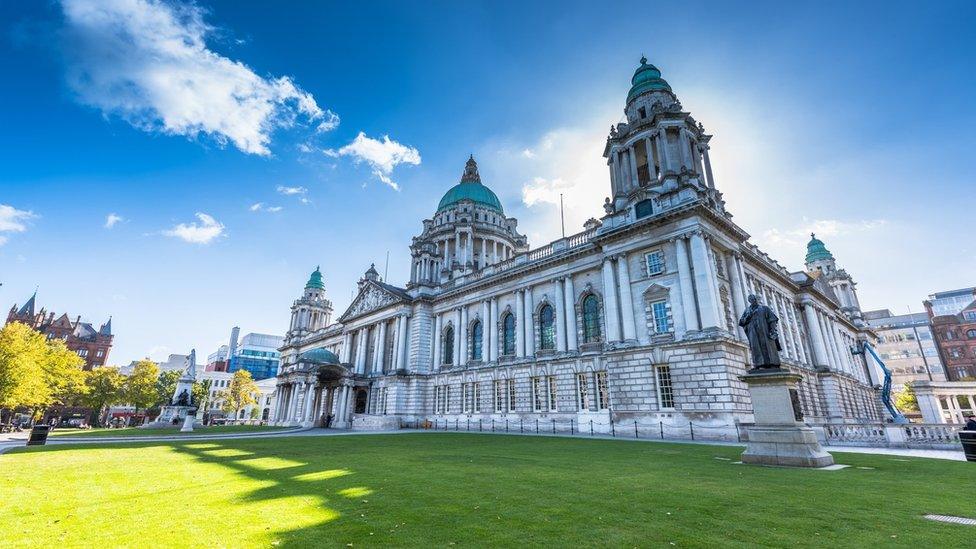
The installations will be erected in the grounds of Belfast City Hall
Mary Ann McCracken and Winifred Carney are to be honoured with new installations in the grounds of Belfast City Hall.
Belfast City Council voted in favour of the installations being erected during a meeting on Tuesday evening.
The women were both nationalist activists. McCracken died in 1866, aged 96, while Carney died in 1943, aged 55.
The effigies are part of a bid to make the city hall grounds more reflective of society, following a review in 2012.
In a video posted on Twitter, Cllr Ciaran Beattie said the current statues in the city hall grounds "weren't a fair representation of the society we live in today".

Allow X content?
This article contains content provided by X. We ask for your permission before anything is loaded, as they may be using cookies and other technologies. You may want to read X’s cookie policy, external and privacy policy, external before accepting. To view this content choose ‘accept and continue’.

"Mary Ann McCracken and Winifred Carney were two leaders in this city," said the Belfast City Council Sinn Féin group leader.
"Both women fought against injustice, both women fought against inequality, they fought for rights, they fought for the freedom of Ireland."
A proposal for the Winifred Carney statue was brought by Sinn Féin in 2017.

Who was Winnifred Carney?
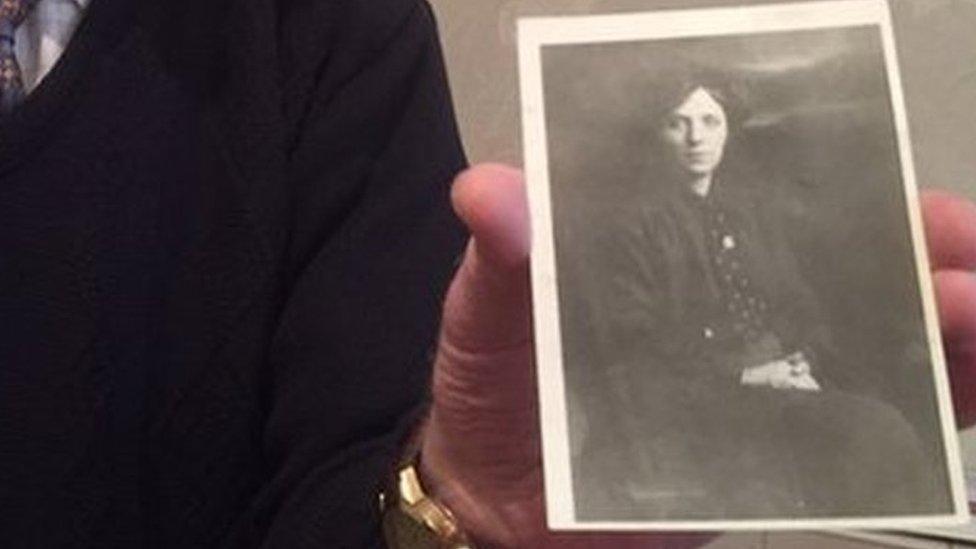
Winifred Carney was a close confidante of James Connolly, one of the leaders of the 1916 Easter Rising
Born in Bangor, County Down, in 1887, Winifred Carney was the second youngest of seven children born to a Catholic mother and a Protestant father.
She moved to Belfast as a child and in her twenties became involved in the Gaelic League, suffragist and socialist activities in Belfast.
She was at James Connolly's side throughout the Easter Rising. Carney was his close confidant and typed his orders throughout the rebellion.

Alliance councillor Michael Long said the next stage of the process would be to look at possible designs for the installations, saying they "won't necessarily be the traditional statue".
"I think we need to try and look forward and recognise the people who have done stuff in the past.
"Mary Ann McCracken had views and ideals that would be totally resonant today with a large section of the community.
Mr Long said he was hoping the "wider issue" of windows honouring LGBT and ethnic minority communities inside Belfast City Hall would also be addressed soon.

Who was Mary Ann McCracken?
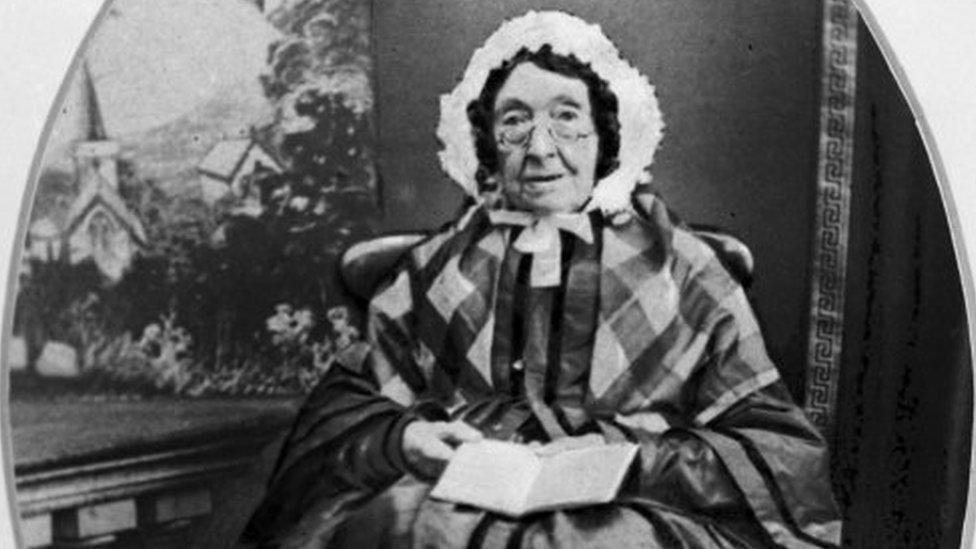
Mary Ann McCracken was a familiar figure at Belfast docks where she warned emigrants about slavery in America
Born in Belfast in 1770, she was one of seven children in a family with a strong Presbyterian background.
She supported a united, independent Ireland and lived through turbulent political times.
Throughout her life, she campaigned for many issues including prison and social reform, the welfare of children and the abolition of slavery.

Initial costs for the statues have been estimated at about £50,000 each, however donations have also been offered in contribution to expenses.
There is a plan for a total of four new statues at the front of Belfast City Hall, with decisions still to be made on who the two remaining statues should depict.
It is expected it could take up to two years before the installations are unveiled to the public.
Related topics
- Published27 March 2016
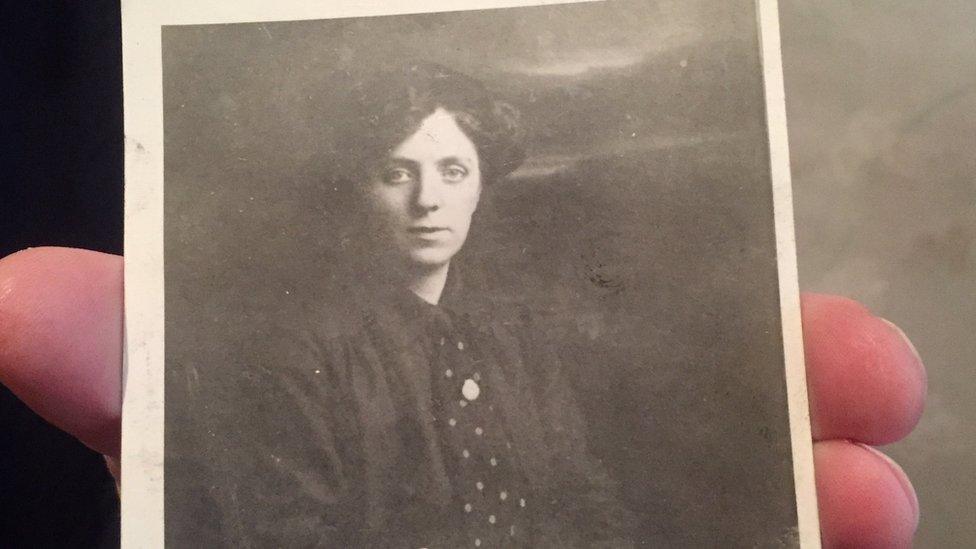
- Published23 January 2021
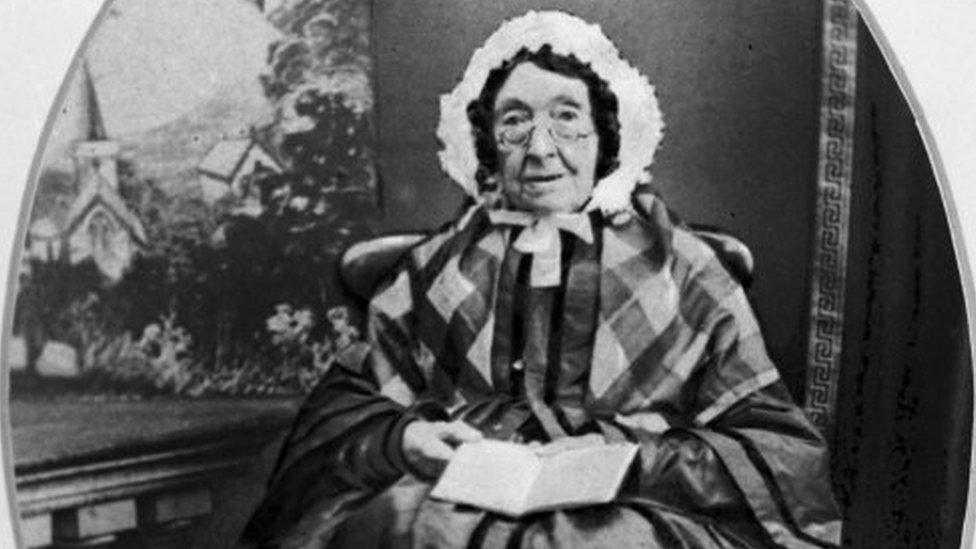
- Published25 January 2019
